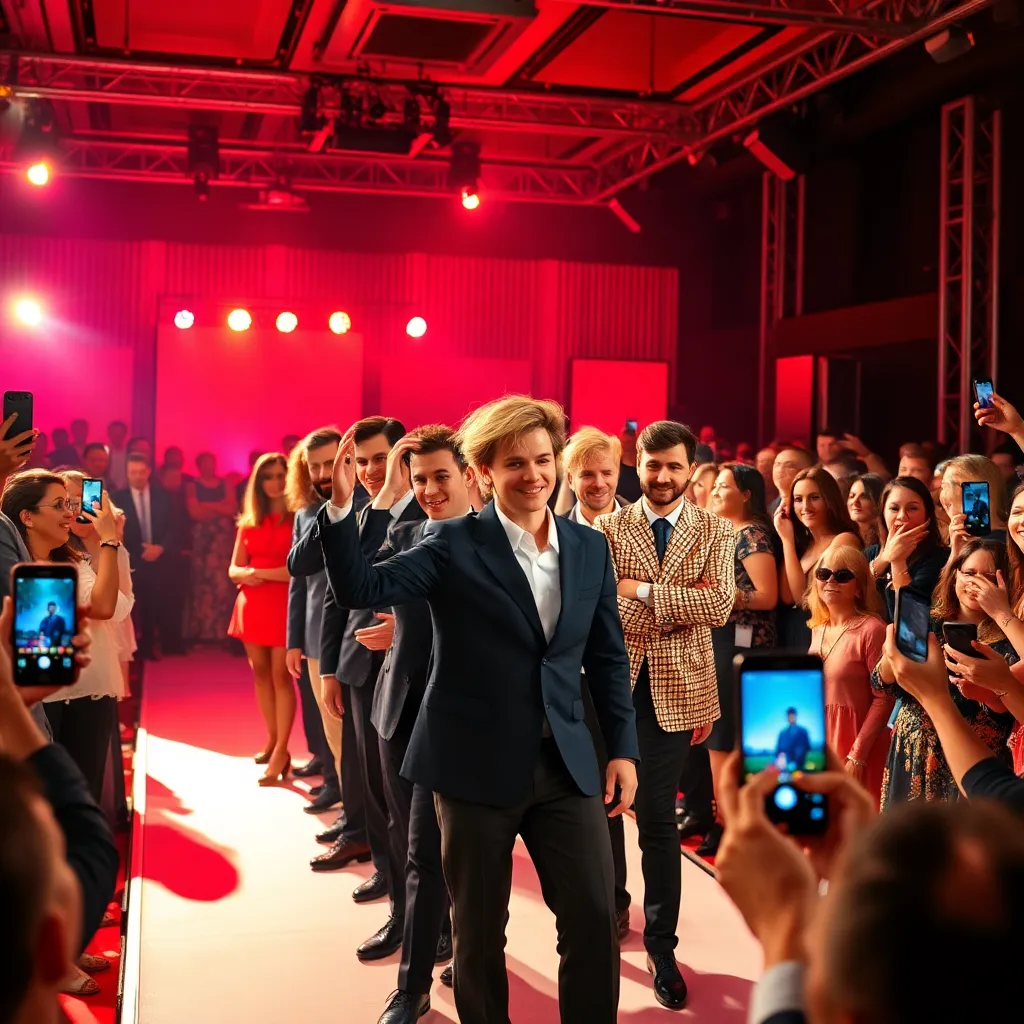The Doppelgänger Effect: A New Era of Fame
London, UK - In a world where reality TV reigns supreme and social media influencers pull more weight than traditional celebrities, a curious phenomenon has emerged: regular individuals are claiming the spotlight simply by resembling famous personalities. From Harry Styles to Rory McIlroy, it seems that the path to fame now requires only a good haircut and a dash of luck.
Meet the Lookalikes
Recently, a competition in London showcased these uncanny impersonators, drawing crowds of curious onlookers and a few bewildered tourists who mistook the lookalikes for the real deal. Contestants strutted their stuff on the runway, showcasing not only their similar looks but their equally impressive talents, which ranged from karaoke renditions of chart-topping hits to overly dramatic interpretations of soap opera scenes.
Tommy Styles, a lookalike of the pop sensation Harry Styles, won the competition with his rendition of “Watermelon Sugar”. As he accepted his award, he quipped, “I’m just here to show that you don’t need to be famous to be fabulous!” His success has led to a surge of interest in lookalike contests, with many aspiring stars now taking to the streets, hoping to capitalize on their uncanny resemblances.
The Celebrity Lookalike Economy
Social media platforms are buzzing with these new doppelgängers, with many creating accounts dedicated to their celebrity counterparts. Influencers like Harry Lookalike and Rory McDon’tKnow (who looks suspiciously like the golfer Rory McIlroy) have amassed thousands of followers, turning their likeness into a full-time job. It seems that the doppelgänger dynasty is not just a passing fad; it’s a burgeoning economy.
A Day in the Life of a Lookalike
We caught up with Steve Styles, an amateur lookalike of the beloved singer. “I never thought looking like Harry would change my life, but here I am!” he exclaimed, as he posed for selfies with fans at a local café. “I get free drinks, discounts, and sometimes even VIP access to events. Just last week, I was mistaken for the real deal at a concert and got backstage!”
Steve’s story is not unique. Many lookalikes report similar experiences, where their celebrity resemblance has opened doors to opportunities they’d never imagined. But it’s not all glitz and glamour; some have faced the downsides of fame. “People can be really weird about it,” Steve admits. “You wouldn’t believe how many times I’ve been asked to sing or take pictures when all I want is a quiet cup of coffee.”
The Dark Side of Doppelgängers
However, the rise of lookalikes has also sparked debate about identity and authenticity. Critics argue that this trend trivializes the hard work and talent of original celebrities, questioning whether the world needs yet another Harry Styles wannabe. Janja Lula da Silva, an outspoken advocate for creative originality, remarked, “It’s great to have fun and all, but let’s not forget the artistry behind the fame. We don’t need a million copies of the same person.”
Celebrity Lookalikes vs. Real Celebrities
Interestingly, the emergence of lookalikes has not gone unnoticed by actual celebrities. Many have embraced the phenomenon, seeing it as a form of flattery. Rory McIlroy himself recently joked about his lookalikes, stating, “If they can make a living off my face, more power to them! Just don’t ask me for golf tips!”
The Future of Lookalikes in a Post-Pandemic World
As we emerge from the shadows of the pandemic, the appetite for entertainment and novelty has never been higher. Lookalike competitions are popping up everywhere, from local pubs to grand theaters, and the public’s fascination with celebrity culture shows no signs of waning. With the rise of TikTok and Instagram, it’s easier than ever for anyone to claim their fifteen minutes of fame—albeit by having an uncanny resemblance to someone already in the limelight.
The Weather and the Lookalike Industry
While the weather in the UK has turned colder, bringing snow and ice warnings, the lookalike industry is heating up. With celebrities like Yulia Navalnaya—widow of the Russian opposition leader—taking to social media to voice their support for lookalikes, the movement is gaining traction. In her latest post, she humorously pointed out, “Even I have a doppelgänger, though I’m not sure they could handle my life!”
The Inevitable Backlash
But not all feedback has been positive. As more people join the doppelgänger craze, a backlash is brewing. Some argue that the phenomenon is a symptom of a society obsessed with superficiality. “It’s all fun and games until people start taking it too seriously,” warned one critic. “What happens when we’re all just a collection of lookalikes instead of original thinkers?”
Conclusion: Embrace Your Inner Doppelgänger
Despite the criticisms, it seems the doppelgänger trend is here to stay. Whether you’re a lookalike, a fan, or just an innocent bystander in a café, there’s something undeniably entertaining about the phenomenon. As we continue to navigate this strange new world, perhaps we should all take a page from the lookalikes’ book: embrace your inner celebrity, even if it’s a little ridiculous. After all, if Harry Styles can make a living off his hair, why can’t you?
So, the next time you see someone who looks a bit like a star, don’t be shy. Ask for a selfie, share a laugh, and maybe even join them in their quest for fame. Who knows? You might just discover that you’ve got a doppelgänger lurking within yourself!
